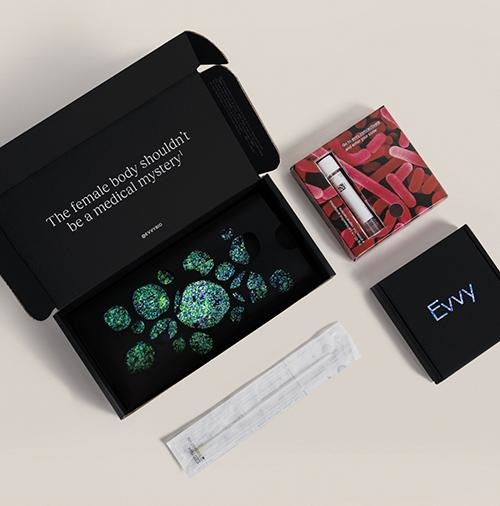Several young companies hope to expand the direct-to-consumer test market by introducing new diagnostic tests to serve the women’s health market
Providing women with at-home lab test kits is the goal of a growing class of start-up companies that are bringing to market consumer test kits for a range of health conditions common to women. These companies believe they can shift a substantial volume of such testing away from the nation’s medical laboratories.
Moreover, diagnostic startups that develop at-home direct-to-consumer (DTC) clinical laboratory genetic tests have been hot commodities among venture capitalists and other healthcare investors willing to put tens of millions of dollars into these new firms. The New York Times observed that, until recently, women’s healthcare needs have rarely been the focus of new diagnostic testing companies, but that the situation may be changing.
“Femtech” (short for female technology) products and services that address the health and wellness needs of women is the new buzz word in healthcare. It describes female-focused diagnostic startups aiming at vaginal health and other medical issues that go beyond reproductive health concerns.
This, however, is a dual-edged sword for clinical laboratory leaders. Growth in this segment could lead to new diagnostics tests that boost a medical lab’s bottom line or, conversely, it could reduce revenue as patients self-diagnose urinary tract infections (UTIs), yeast infections, and other conditions through at-home DTC testing.

“The market potential is huge,” Michelle Tempest, MD (above), a partner at the London-based healthcare consulting firm Candesic, told The New York Times. “There’s definitely an increasing appetite for anything in the world which is technology and a realization that female consumer power has arrived—and that it’s arrived in healthcare.” Tempest maintains the women’s health marketplace is ripe for growth, which could mean a boon for clinical laboratory testing and diagnostics designed specifically for women. (Photo copyright: Candesic.)
Vaginal Microbiome At-home Clinical Laboratory Tests in High Demand
One area in particular drawing the attention of several female-led startups is vaginal health. According to an article in Vogue, test developers Juno Bio and Evvy are leading the way with at-home vaginal microbiome tests that let users “know what’s up down there.”
New York City-based Evvy ($129 for a single test or $99 each for four tests per year) uses metagenomic sequencing to identify the bacteria and fungi present in the vaginal microbiome. This information helps customers to understand their levels of protective and disruptive bacteria, which can be associated with everything from reoccurring infections and transmission of sexually transmitted diseases to infertility.
London-based Juno Bio ($149 per test) does not disclose its testing method. It does, however, provide users with a “full vaginal microbiome profile.” The profile is accessed online within a “few days” of returning the vaginal swab sample to the company’s clinical laboratory.
Both companies note that their tests are intended to be used for wellness purposes and are not meant to diagnose or treat disease or substitute for a physician’s consultation.
Gynecologist Oluwatosin Goje, MD, MSCR, FACOG, a reproductive infectious disease specialist at Cleveland Clinic, believes the availability of at-home vaginal microbiome testing will provide valuable information to both women and their doctors.
“It’s a powerful tool because it enables us to look at the entire microbial community through metagenomics and decipher how the overall composition might be affecting symptoms and infections, as well as determine the best treatment pathway,” Goje, an Evvy Medical Advisor, told Vogue. “Understanding the complete vaginal microbiome allows us to be good antibiotic stewards and only administer antibiotics when needed. Patients can also retest remotely to understand how antibiotics and other treatments impacted their vaginal microbiome.”

Evvy, which offers women an at-home vaginal microbiome test (above) that can provide insights into chronic vaginal infections and proclivity to contract sexually transmitted diseases and other women’s health issues, is one of several women-led diagnostic start-ups focused on women’s health. (Photo copyright: Evvy.)
Removing the Discomfort of Shopping for Women’s Health Products
Jamie Norwood and Cynthia Plotch, co-founders of Stix, a supplier of women’s health products and education, launched their company with a product line of at-home pregnancy and ovulation tests. They have since expanded their offerings to include urinary tract infection (UTI) and yeast infection testing and treatments.
“You can test, relieve, treat, and help prevent future infections—all from the comfort of your own home,” Norwood, told Vogue. She emphasized that this is the kind of experience healthcare consumers are demanding in today’s ever-growing direct-to-consumer clinical laboratory testing landscape. “Agonizing over confusing over-the-counter products in the drugstore aisles, or bending over backwards to pick up a prescription at the pharmacy, just isn’t cutting it for Millennial and Gen Z consumers.”
According to WebMD, yeast infections are a chronic problem for many women. While 75% of women will get at least one yeast infection in their lifetime, up to 8% get more than four a year. In addition, the federal Centers for Disease Control and Prevention (CDC) points out that bacterial vaginosis is the most common vaginal condition in females ages 15-44.
Lola Priego, is CEO and founder of blood test company Base, which sells at-home saliva and finger-prick blood tests to monitor hormone levels, vitamin levels, neurotransmitters, and blood cell markers to improve everything from sleep and diet to sex drive. She predicts direct-to-consumer testing will become as common as fitness watches.
“Eventually, at-home lab testing will be another readily-used tool, similar to your health-tracking wearables, that helps us optimize for a well-rounded healthy lifestyle in a more individualized way,” Priego told Vogue.
Femtech a ‘Significantly Underdeveloped’ Market
In its latest Analyst Note, financial data firm PitchBook maintained that the market for female health products is poised for growth. TechCrunch, which reviewed PitchBook’s analysis of female-focused health products, reported that Femtech remains a “significantly underdeveloped” slice of health-tech spending.
While women spend an estimated $500 billion annually on medical expenses, only 4% of research and development money is targeted at women’s health, PitchBook noted. In its analysis, Pitchbook predicted the global market for female-focused health products will reach $3 billion by the end of 2030. By comparison, that segment of the healthcare market totaled $820.6 million last year.
“While we still view Femtech as a niche industry, we believe secular drivers could help propel new growth opportunities in the space,” PitchBook analysts wrote. “These include the increasing representation of women in the venture-backed technology community, rising awareness and acceptance of women’s health issues, and the growing prevalence of infectious diseases among women in some countries in Africa and Asia.
“Furthermore, while the majority of Femtech products have traditionally focused on reproductive health, we believe new approaches to women’s health research will help open the door to new products and services,” they noted.
Clinical laboratory leaders will be wise to carefully watch the growth of at-home DTC tests and products targeted at female healthcare consumers since fewer trips to physicians’ offices may mean fewer test orders for local labs.
At the same time, the opportunity exists for innovative pathologists and lab managers to develop digital services that allow consumers who are self-testing to store their home-test results in the lab’s app. They can then receive relevant insights from clinical pathologists to help them fully understand the implications of the test results.
—Andrea Downing Peck
Related Information:
Is ‘Femtech’ the Next Big Thing in Healthcare?
Femtech VC Space Poised for Growth
Femtech Poised for Growth Beyond Fertility
Pitchbook Analyst Note: Femtech Expected to Break New Grounds



